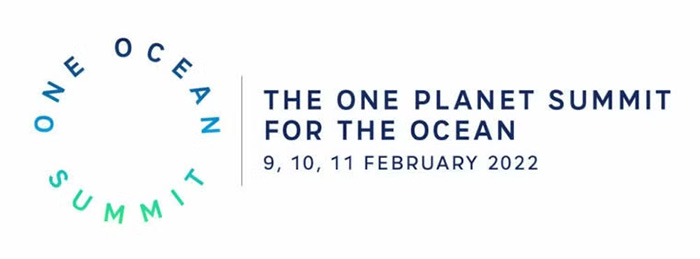Interviews / Ocean
10 February 2022
One Ocean Summit, Un Sommet Avant Tout Géopolitiqueone Ocean Summit, a Summit That Is Above All Geopolitical.

From 9 to 11 February, the One Ocean Summit is taking place. As the issue of oceans becomes increasingly central to international conventions, the organisation of this summit carries a geopolitical significance for France. What are the stakes of this summit? What outcomes can we expect? Insights from Julia Tasse, a researcher at IRIS and head of the Climate, Energy and Security Programme.
The One Ocean Summit: A Geopolitical Event
The One Ocean Summit is the first in a series of international events centred on the ocean to take place throughout 2022. Why is the topic of oceans becoming increasingly central?
Taking place from 9 to 11 February, the One Ocean Summit brings together dozens of political and economic decision-makers, scientists, and NGO representatives. This initiative, launched by Emmanuel Macron, follows in the footsteps of the One Planet Summits. It is worth noting that these events aim more to maintain momentum on environmental issues than to facilitate negotiations or the signing of agreements. The first One Planet Summit was held in 2017, and the last, focused on oceans, coincides with the final months leading up to the French presidential elections.
As you’ve mentioned, it’s no coincidence that the summit’s theme is the ocean: seas are increasingly regarded as essential elements in environmental discussions. In my view, this represents a political acknowledgment of a natural fact: the ocean is a key player in the climate system and a host of unique biodiversity. Therefore, as international meetings on climate and biodiversity proliferate, attention naturally shifts toward the ocean. This is also driven by strong public advocacy and the ocean’s importance to our globalised economy, as underscored by the pandemic.
The oceanic summits planned for 2022 align with this broader trend: the One Ocean Summit kicks off a year rich in maritime discussions, including the United Nations Environment Assembly (March, Kenya), the COP15 on biodiversity (April, China), and the UN Ocean Conference (June, Portugal).
Why is the One Ocean Summit primarily geopolitical?
Although it discusses natural elements, this summit is fundamentally political and geopolitical.
Politically, it provides Emmanuel Macron with an opportunity to sustain the momentum of the One Planet Summits, positioning him both nationally and internationally as a leader in the fight against climate change. It also sends a message just months before the presidential elections.
Geopolitically, the summit is significant for several reasons. Firstly, the management of global commons like the climate, biodiversity, and the ocean inevitably requires global discussions and international agreements. While the topics addressed are rooted in natural and social sciences, bringing heads of government together and finding common ground is crucial for action on ocean health—placing us squarely in the realm of geopolitics. Secondly, this summit reaffirms France’s role as a driving force in international climate and biodiversity commitments and highlights its maritime power. With the world’s second-largest maritime domain, France’s role in ocean protection is often overlooked, and this summit serves as a reminder. The French Presidency of the Council of the European Union further amplifies this message.
What can we expect from this summit?
This is the key question. While the summit has the merit of bringing together key maritime stakeholders from France, Europe, and beyond, it primarily serves as a platform to catalyse certain projects and generate diplomatic momentum. It does not take place within the framework of a UN convention and involves a limited number of countries. Given a busy agenda, it is likely that there has been minimal prior discussion or negotiation—the real keys to achieving international consensus.
As such, it is doubtful that the summit will result in the signing of international agreements. However, we can expect declarations of intent, unilateral or bilateral commitments, and potentially announcements regarding certain countries’ positions ahead of the aforementioned UN conferences. These announcements will likely address NGO demands for commitments to protect 30% of ocean surfaces by 2030 or for a moratorium on deep-sea mining. While international agreements are needed to support these proposals, some progress and multilateral understandings could be announced by the end of the summit on Friday.

